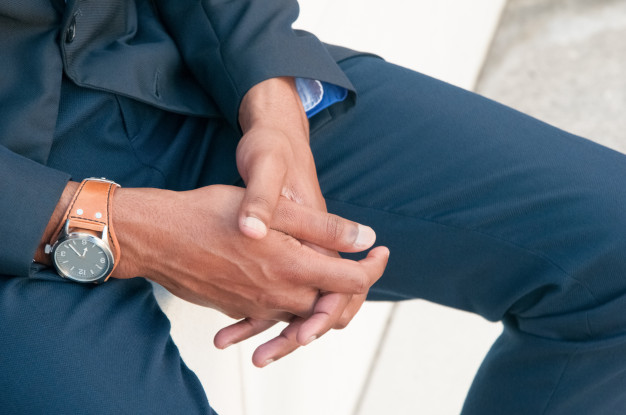
Growing up, did your mother tell you to stand up straight and stop slouching? It may have annoyed you then, but that advice will hold you in good stead when you’re interviewing for a job.
Research shows that in an interview, candidates are more likely to be assessed on body language than what is said or tone of voice. Which is why if you want to get hired, you need to get your non-verbal communication right.
Management author Peter F Drucker pronounced, “The most important thing in communication is hearing what isn’t said,” and his assessment was spot on. The body conveys subtle cues that project nervousness, indecision, lack of confidence and even pride and arrogance. An inability to maintain eye contact, for example, can signal that you are insincere. Slouching on your seat may indicate that you have a casual attitude.
Here’s how to adopt the right posture
That’s why it is essential to review your body language before going in for an interview. For starters, focus on what you should do and shouldn’t do.
Mind your mannerisms
There are a few basic elements to projecting good body language.
Make sure your handshake is neither too limp nor too firm. A limp handshake indicates that you lack confidence, while a firm handshake could make you seem domineering.
Grip your interviewer’s hand firmly but politely and team it up with a pleasant smile. The latter conveys your enthusiasm and willingness to be a part of the organization.
During the course of the interview, however, tone down the smiles, using them only when you genuinely mean it. The key to successful body language is never to fake it.
Maintain steady eye contact with your interviewer to indicate that you are sincere and genuinely mean what you say. If there is more than one interviewer, maintain eye contact with all of them in equal measure. If one interviewer asks you a question, start by initiating eye contact with him/her before turning to the others and return to him/her again. But be wary of staring — steady eye contact does not mean fixing your gaze on a person to the point of making them feel uncomfortable.
Maintain a good posture
Keep your back straight, don’t slouch or appear too rigid. While slouching sends the message that the candidate has a casual attitude, being too rigid may indicate nervousness or a lack of self-assurance. You can lean ahead slightly during the interaction to indicate eagerness and involvement.
The proper place to keep your arms is on your thighs or on the table in front of you. Use your hands to stress a point, but don’t wave them as you would at a demonstration or protest march.
Never fold your arms across the chest — this creates distance between you and the interviewer.
Maintain your composure and don’t fidget; fidgeting will lead the interviewer to believe that you are either not interested or nervous during the interview.
Walk in with confidence
Project self-assurance as you enter the interview room. Any hesitation can be read as lack of confidence. But remember, there’s a thin line between appearing confident and brash. So be sure to take your cues from your interviewer.
Watch your interviewer’s body language
Like your body language says a lot about you, your interviewer’s body language says a lot about him. Look for cues in his body language that will tell you whether he is interested or bored with the interaction. If he is twiddling his thumbs or staring blankly at you, it probably means you have lost his attention. Try and involve him in the conversation by saying something to interest him again.
Stay connected
Subtly through your body language, convey to the interviewer that you and he/she are on the same page. Nod gently at times to show agreement, or to merely indicate that you get what they are saying. But don’t overdo the nodding since this will imply that you are eager to please. Also, don’t stand too close – be respectful of your interviewer’s personal space.
The right body language may not be enough to get you the job. But it will definitely help you make a good case for being hired.
Some takeaways
Don’t
– Fake your feelings
– Smile too much
– Come across as shifty-eyed or fidgety
– Fold your arms or gesticulate wildly with your hands
– Stand too close
– Ignore cues from your interviewer’s body language
Do
– Project self-assurance
– Stand up straight with your shoulders back
– Share a firm handshake
– Make eye contact
– Smile, when you mean it




